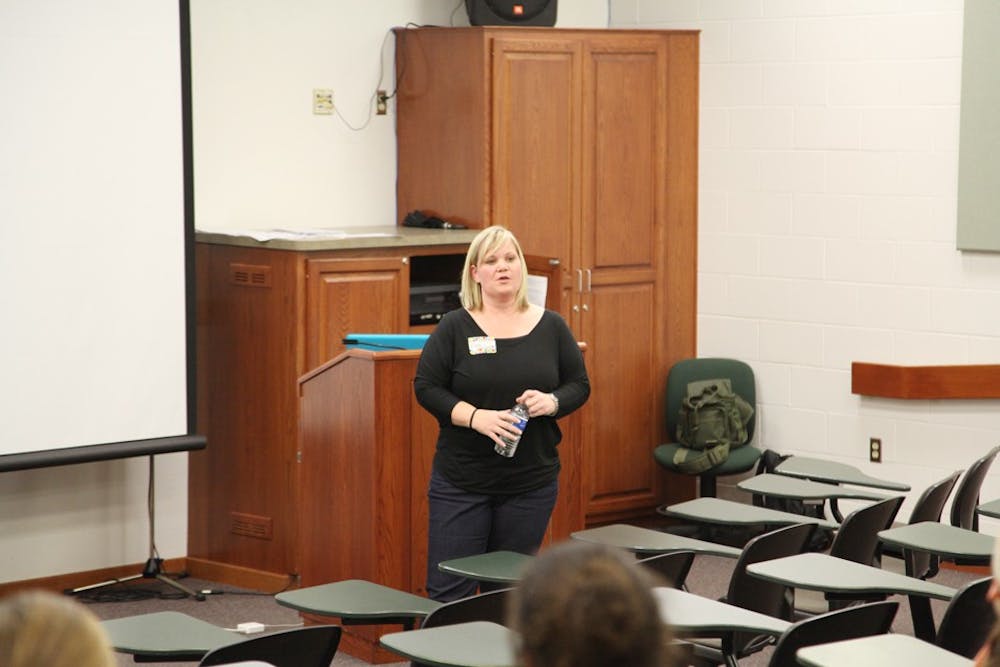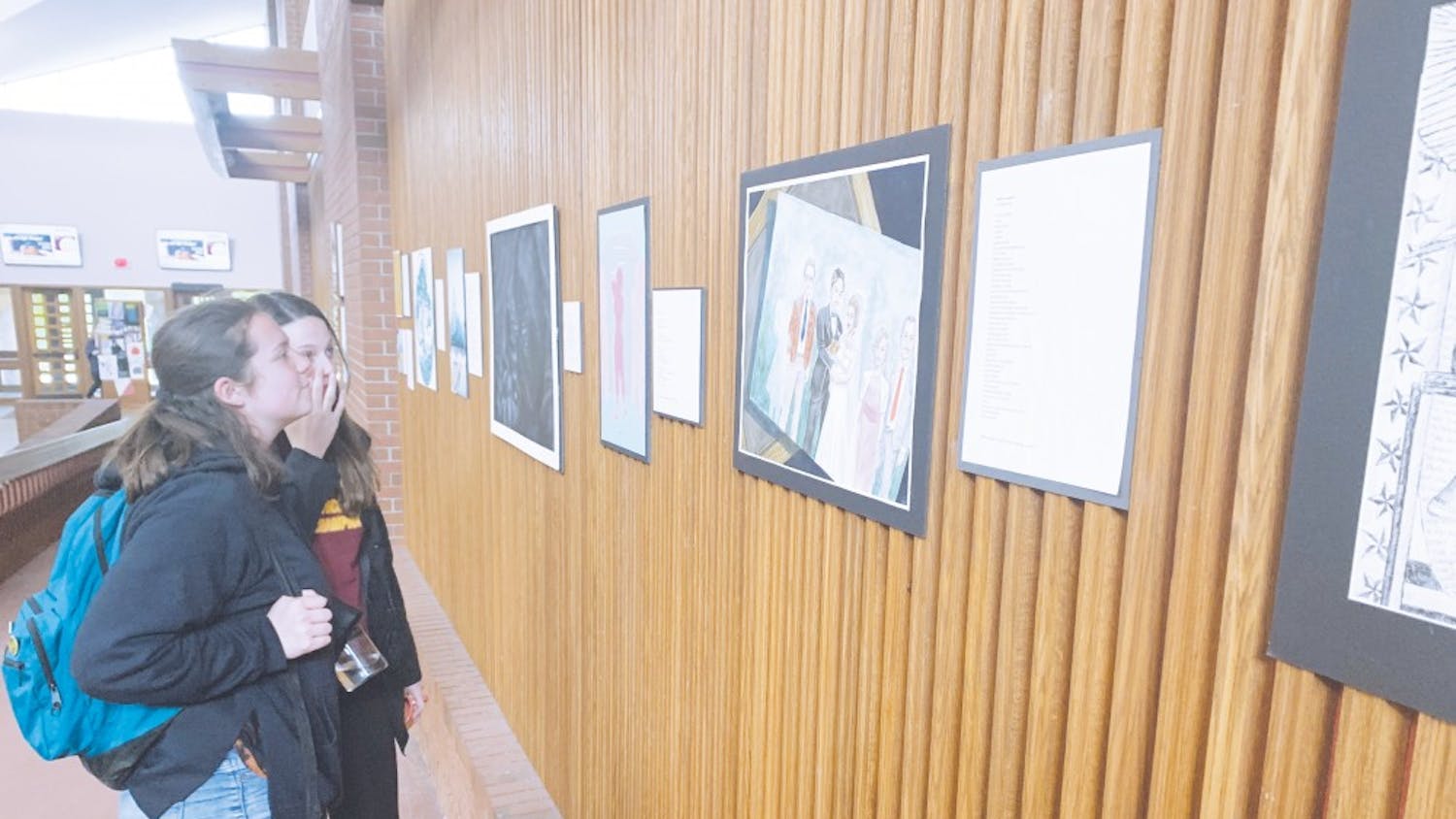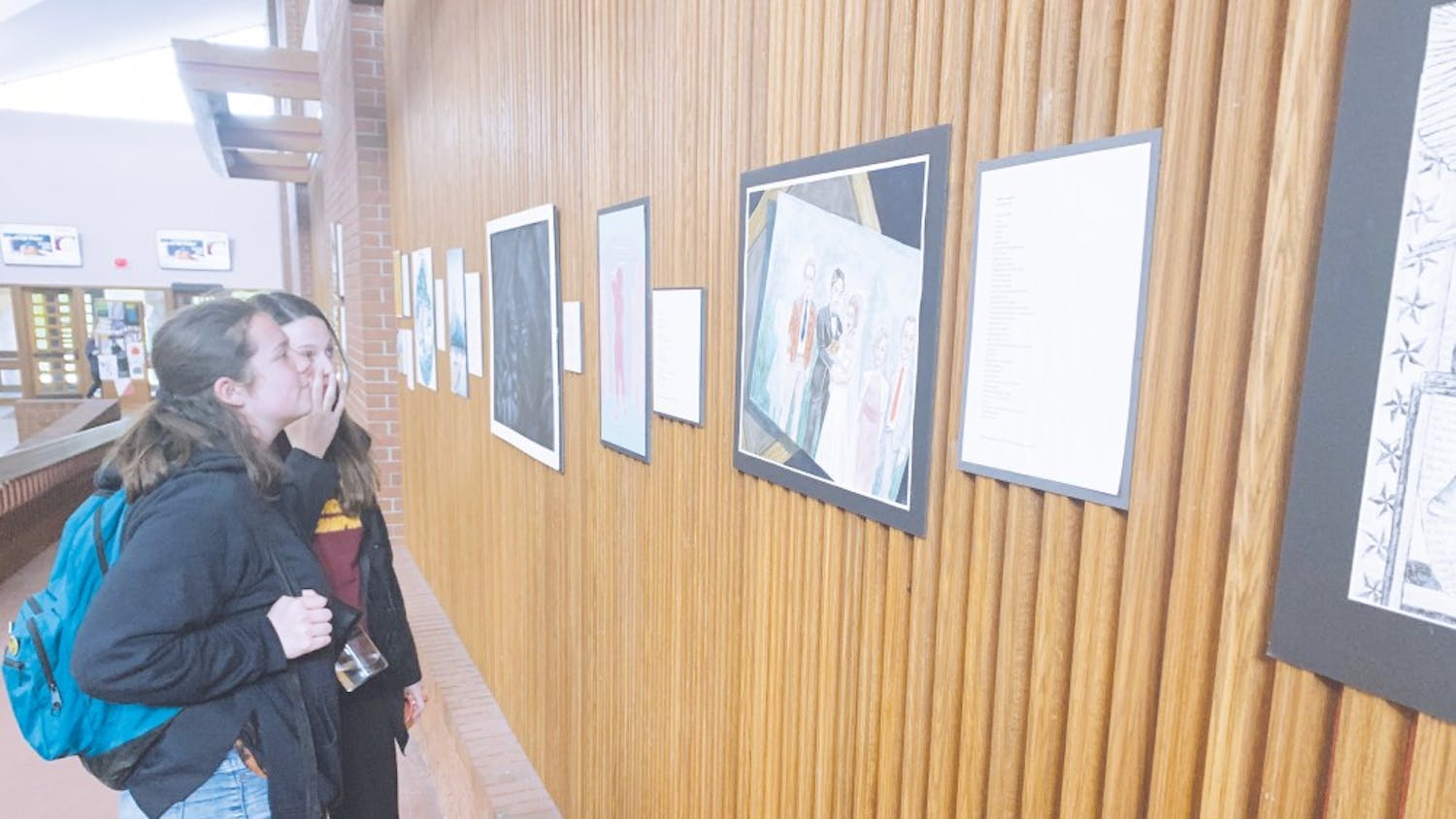By David Seaman| Echo
The lights dimmed, the projector screen flashed on and stories came to life Thursday at 7 p.m. in Metcalf 002. Film School Africa, a non-profit arts ministry founded by Taylor alum Katie Taylor ('02), showed five films in an informational and support-raising event.
From an outcast struggling to fit into a changed society to a pint-sized hero establishing peace, films showed the humanity present in all of us. Personal testimonies and scholarships gave an audience a sense of the film school and why this encouraging project needs funding.
According to Film School Africa's website, the organization's mission is to "harness the power of visual arts, allowing disadvantaged youth to crash through barriers and make their dreams a reality."
Through a business model that unites promising students with a small film production company, young South Africans are enabled to make money on community projects and move steadily toward advanced studio work. The results are educated students with innovative ideas, finding a whole new world of prospective jobs in the film industry.
"The work that Film School Africa is doing reflects the healing and transformative power of art, love and faith," said professor of art history Rachel Smith. Conversations on taboo issues such as drug addiction, poverty, violence and HIV/AIDS are explored through the film medium, she added, allowing students an opportunity to share their stories.
"It's important to understand where the students are coming from," said Taylor, a former communication studies major with a theatre arts minor. "When students start with us they have never held a video camera before. It's not like jumping into a professional film school."
With 50 students in the township Kayamandi (which has a denser population than New York City) and 9 new students in the resort town Strand, Film School Africa has a growing student body. The film program splits into four levels. Level one students use the cheapest film cameras they can find, usually Sony or Canon handhelds. Taylor explained that the quality of the filming is not top priority for level one students.
"It's more about teaching level one students story structure and how to create and build a story," Taylor said. "The technical story is the backend."
Higher level students use nicer cameras with audio inputs and jacks. These cameras are still rather rudimentary compared to production equipment at places such as Taylor. "It's not like they're shooting on the RED Epics!" Taylor laughed, referencing the top-notch cameras used in the media communication department.
Besides the four film levels, Film School Africa also has two levels of photography along with a "Jungle Arts" photography class for 8-12 year olds. The film school includes acting, poetry, hip-hop performance and writing classes.
Despite the range of selections, film is by far the most popular. The unique storytelling and difficult but rewarding work involved in the shooting process attract many eager young filmmakers.
Many of the films deal with the racial divide-how Africans feel they are represented as people groups. Some films tackle the lack of indoor plumbing and public toilets.
These films get to the core of people's life stories. "They're personal films, my favorite kinds," Taylor said. "When they talk about themselves they are doing a lot of processing and healing; they are looking at their own traumas and looking at in in a different way."
The students are given a sense of control, many for the first time in their lives. "They take apart the things that happened to them and the things they couldn't control and are given a position of power to go back and make a movie on it," Taylor said.
For Katie Taylor, Film School Africa is another way for her to take control of her life. After graduating from Taylor in 2002 and working in Hollywood for a few years as an associate casting director, Taylor decided to visit South Africa for a mission trip in 2005. She returned for six months in 2008 and taught her first film class, and eventually moved to the country and started the film school in 2010.
While many young organizations struggle, the start-up process went smoothly for Taylor. "I started with a group of 13 students," she said. "I only expected to be there a couple months, (to) do my time and then come back and continue my Hollywood career."
But what Taylor saw in that South African township was a revelation. "Once I had the experience of being there and watching students hold a camera and edit on laptops, walking a red carpet in the end for their own festival, that changed my life," she said. "I went back to Hollywood to pay off the equipment and then I moved back."
Audiences were moved by the short films shown yesterday, revealing the impact Taylor gave to the teens in the township. Although the organization isn't explicitly Christian, each of the students have a God-given vision and talent.
"Through the mentorship of people like Katie Taylor and her South African colleague, Marie Midcalf, these young people are able to develop not only marketable skills but a new vision of life and a better future for themselves and their community," Smith said.
Through Film School Africa, the care and kindness shone on them introduces them to a truly tangible love of Christ. These are stories worth seeing.





